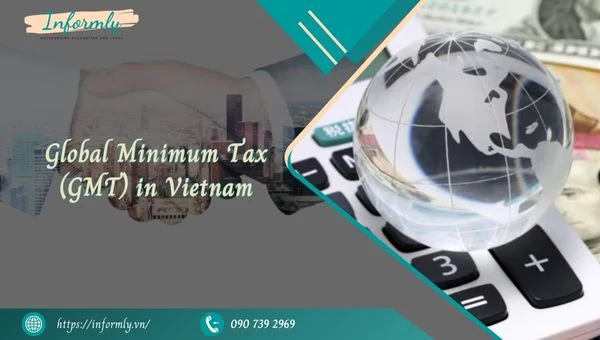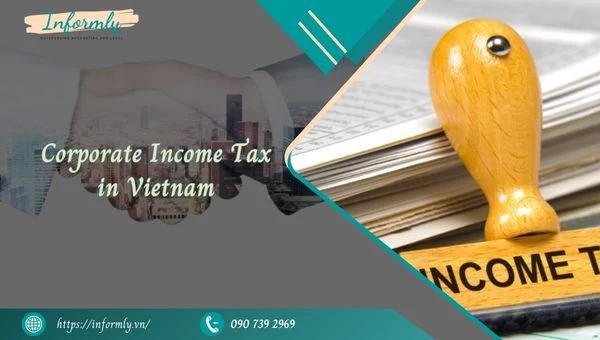Vietnam has emerged as one of Southeast Asia’s most dynamic economies, attracting both local and foreign investors looking to establish businesses. Understanding the types of companies in Vietnam is crucial for anyone planning to enter this vibrant market. Vietnam’s legal framework offers various business structures, each with its own benefits, requirements, and limitations. In this guide, we’ll explore the different types of companies in Vietnam, their characteristics, and how they suit various business goals.
Why Understanding Types of Companies in Vietnam Matters
Before diving into the specifics, let’s discuss why choosing the right company type is essential. Vietnam’s business environment is governed by the Law on Enterprises 2020, which outlines the legal structures available for businesses. Selecting the appropriate company type affects taxation, liability, capital requirements, and operational flexibility. Whether you’re a startup founder, a foreign investor, or an established corporation, knowing the types of companies in Vietnam helps you make informed decisions that align with your business strategy.
1. Limited Liability Company (LLC)
Overview of LLCs in Vietnam
The Limited Liability Company (LLC) is one of the most popular types of companies in Vietnam, especially for small and medium-sized enterprises (SMEs) and foreign investors. An LLC can be established as a single-member LLC (owned by one individual or organization) or a multi-member LLC (with two to 50 members).
Key Features of an LLC
- Limited Liability: Members are only liable for the company’s debts up to the amount of their capital contribution.
- Capital Requirements: There is no minimum capital requirement for most industries, except for specific sectors like banking or insurance.
- Management Structure: LLCs have a flexible management structure, typically involving a Members’ Council, a General Director, and optional supervisory boards.
- Foreign Ownership: Foreign investors can own 100% of an LLC in many sectors, making it attractive for international businesses.
Advantages of an LLC
- Easy to set up and manage compared to other structures.
- Suitable for businesses seeking full control without public shareholding.
- Protects personal assets due to limited liability.
Disadvantages of an LLC
- Limited to 50 members, restricting scalability for larger enterprises.
- Raising capital can be challenging as LLCs cannot issue shares.
For entrepreneurs looking for flexibility and protection, the LLC is often the go-to choice among the types of companies in Vietnam.

2. Joint Stock Company (JSC)
What is a Joint Stock Company?
A Joint Stock Company (JSC) is another prevalent business structure in Vietnam, ideal for businesses planning to scale or attract investors. A JSC is characterized by its ability to issue shares and have an unlimited number of shareholders.
Key Features of a JSC
- Shareholders: A JSC must have at least three shareholders, with no upper limit.
- Capital Contribution: Shareholders are liable for debts only up to their contributed capital.
- Management Structure: JSCs have a more complex structure, including a General Meeting of Shareholders, a Board of Management, and a General Director. A Supervisory Board is mandatory if the JSC has more than 11 shareholders.
- Public Listing: JSCs can list on Vietnam’s stock exchanges, making them suitable for large-scale businesses.
Advantages of a JSC
- Ability to raise capital through share issuance.
- Suitable for businesses aiming to go public or attract multiple investors.
- Flexible ownership structure with transferable shares.
Disadvantages of a JSC
- More complex and costly to establish and manage than an LLC.
- Stricter regulatory and reporting requirements.
- Potential for conflicts among shareholders due to diverse ownership.
Among the types of companies in Vietnam, JSCs are favored by businesses with ambitious growth plans or those seeking public investment.\

See more: Establish a company in Vietnam
3. Partnership
Understanding Partnerships in Vietnam
A Partnership is a less common but still significant type of company in Vietnam. Partnerships are suitable for professionals like lawyers, accountants, or consultants who want to collaborate under a shared business entity.
Types of Partnerships
- General Partnership: All partners have unlimited liability for the company’s debts.
- Limited Partnership: Includes both general partners (with unlimited liability) and limited partners (liable only up to their capital contribution).
Key Features of a Partnership
- Liability: General partners bear unlimited liability, while limited partners enjoy liability protection.
- Management: Partners typically manage the business collectively, with decisions made by consensus.
- Capital: No minimum capital requirement, but contributions vary based on partnership agreements.
Advantages of a Partnership
- Simple to establish with fewer regulatory requirements.
- Suitable for professional services and collaborative ventures.
- Flexible profit-sharing arrangements.
Disadvantages of a Partnership
- Unlimited liability for general partners poses significant risks.
- Less attractive to foreign investors due to liability concerns.
- Potential for disputes among partners.
While not as popular as LLCs or JSCs, partnerships remain a viable option among the types of companies in Vietnam for specific industries.

4. Sole Proprietorship
What is a Sole Proprietorship?
A Sole Proprietorship is a business owned and operated by a single individual. It’s the simplest form among the types of companies in Vietnam, often chosen by small-scale entrepreneurs or freelancers.
Key Features of a Sole Proprietorship
- Ownership: Fully owned by one person, who has complete control over operations.
- Liability: The owner bears unlimited liability, meaning personal assets are at risk for business debts.
- Capital: No minimum capital requirement, making it accessible for startups.
Advantages of a Sole Proprietorship
- Easy and inexpensive to set up.
- Full control over decision-making.
- Minimal regulatory compliance.
Disadvantages of a Sole Proprietorship
- Unlimited liability poses significant financial risks.
- Limited ability to raise capital or attract investors.
- Not suitable for large-scale or complex businesses.
Sole proprietorships are ideal for individuals starting small businesses but may not suit those seeking growth or liability protection.

5. Foreign-Invested Enterprises
Overview of Foreign-Invested Enterprises
Vietnam’s open-door policy has made it a hotspot for foreign direct investment (FDI). Foreign-Invested Enterprises (FIEs) are companies established by foreign individuals or organizations, often as LLCs or JSCs, but with specific regulations.
Key Features of FIEs
- Ownership: Foreign investors can own up to 100% in many sectors, though restrictions apply in industries like telecommunications or real estate.
- Legal Structure: FIEs typically operate as LLCs, JSCs, or branches of foreign companies.
- Approval Process: Requires an Investment Registration Certificate (IRC) and an Enterprise Registration Certificate (ERC).
Advantages of FIEs
- Access to Vietnam’s growing market and trade agreements.
- Flexibility in choosing business structures.
- Potential tax incentives in certain industries.
Disadvantages of FIEs
- Complex registration process compared to domestic companies.
- Restrictions in certain sectors for full foreign ownership.
- Higher scrutiny from regulatory authorities.
FIEs are a critical part of the types of companies in Vietnam, reflecting the country’s appeal to global businesses.
6. Representative Office and Branch
Representative Office
A Representative Office (RO) is not a standalone company but an extension of a foreign business in Vietnam. It’s used for market research, liaison activities, or promoting the parent company’s business.
- Limitations: ROs cannot engage in profit-making activities.
- Advantages: Low setup costs and minimal compliance requirements.
- Disadvantages: Limited operational scope.
Branch
A Branch is another extension of a foreign company, allowed to conduct commercial activities like trading or service provision.
- Advantages: Can generate revenue and operate like a local business.
- Disadvantages: Subject to stricter regulations and taxation.
Both ROs and branches are alternatives to traditional company types, catering to foreign businesses exploring Vietnam’s market.
Choosing the Right Type of Company in Vietnam
Selecting the right business structure depends on several factors, including:
- Business Goals: Are you aiming for scalability, local operations, or market entry?
- Capital Availability: Do you have sufficient funds for setup and compliance?
- Liability Preferences: Are you comfortable with unlimited liability, or do you prefer protection?
- Foreign Ownership: Are you a foreign investor facing sector-specific restrictions?
Consulting with legal and financial experts is advisable to navigate Vietnam’s regulatory landscape and choose the best among the types of companies in Vietnam for your needs.
Vietnam’s diverse range of business structures, from Limited Liability Companies and Joint Stock Companies to Partnerships, Sole Proprietorships, and Foreign-Invested Enterprises, offers entrepreneurs unparalleled flexibility to pursue their goals. Each type of company in Vietnam caters to unique needs, whether you’re a local startup, a global investor, or a professional seeking collaboration. By understanding the types of companies in Vietnam, you can confidently choose the structure that aligns with your vision and ensures compliance in this dynamic market. For expert guidance on navigating Vietnam’s business landscape, trust Informly – your partner in simplifying company setup and unlocking opportunities in one of Asia’s fastest-growing economies. Start your journey with Informly today and thrive in Vietnam’s vibrant business ecosystem.







